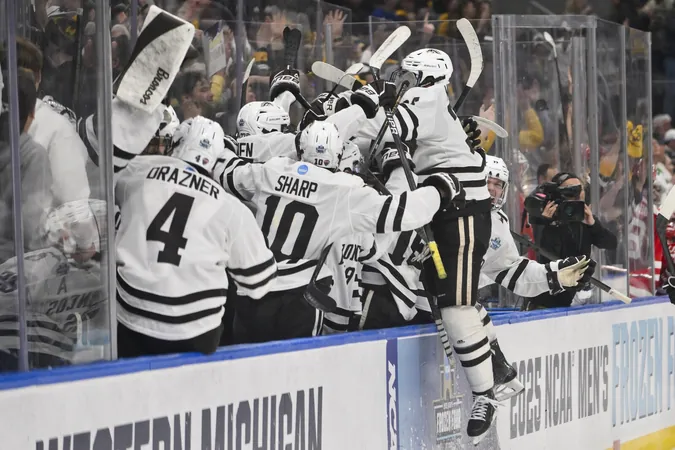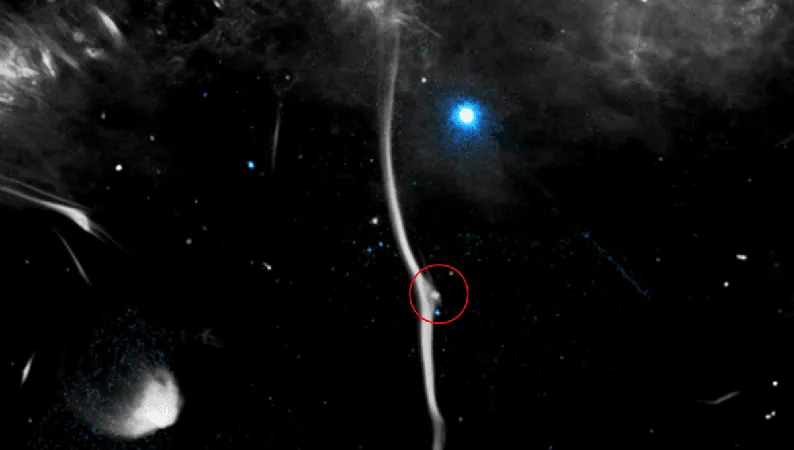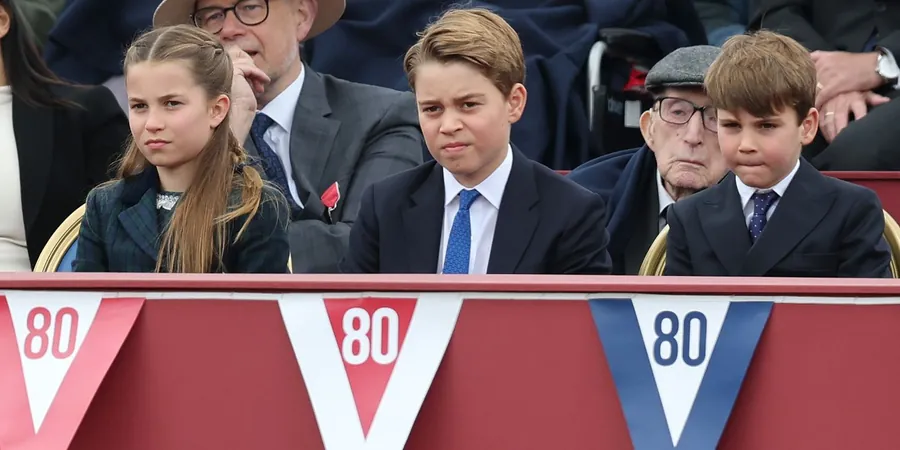
The Unstoppable Rise of the NCHC: Why the Big Ten's Wealth Can't Buy a Title
2025-04-17
Author: Ying
**GRAND FORKS** — In a season that many hoped would usher in a new era for college hockey, the National Collegiate Hockey Conference (NCHC) proved once again why it is the reigning powerhouse. Despite having its worst nonconference record in ten years, the NCHC triumphed as Western Michigan clinched the NCAA national championship, overcoming Boston University 6-2.
This victory marked an astonishing seventh national title in nine tournaments for the NCHC, with other champions including the University of North Dakota, Minnesota Duluth, and Denver. This league is reminiscent of the dominance shown by the Western Collegiate Hockey Association from 1973 to 1983, which won ten of eleven titles.
While many anticipated the Big Ten's wealth and exposure might herald a new era of domination, the league has not secured a national championship since its inception in 2013-2014, with the last title for a member team occurring nearly two decades ago.
After a dominant first round in the recent NCAA tournament where Big Ten teams outperformed expectations, they faltered, ending the tournament with a lackluster 9-12 record. In fact, only one team from the Big Ten even reached a championship game in the last seven years.
There's an underlying tension in college hockey, as Big Ten schools have amassed a recruiting edge, snatching up top talent at alarming rates. Since 2019, the Big Ten has seen 24 NHL first-round picks, outpacing the NCHC’s five.
Several key players have announced their transfers to Big Ten programs, including St. Cloud State's Colin Ralph heading to Michigan State and UND's Jayden Perron transferring to Michigan. As Canadian Hockey League stars become eligible for college, Big Ten teams are eagerly pursuing them with substantial Name, Image, and Likeness deals, hinting at a bright future.
However, there's a paradox within college hockey: Despite having rosters stacked with top NHL prospects, teams often fail to secure titles. The last eight tournaments have shown that recruitment alone does not translate into victory. Surprisingly, two of the last three national champions did not include any players selected in the top 65 of the NHL Draft.
Yet the NCHC demonstrated that championship-caliber teams can be built without an overabundance of pre-drafted talent. Western Michigan achieved a historic trifecta this season by winning their conference's regular season, playoff, and national titles, with only one NHL draft pick on the roster.
As for the Big Ten, while it has made strides on the ice during regular season play, notably holding the record for the best nonconference performance four consecutive years since the pandemic, the real test lies in the playoffs — where they still fall short.
In this latest season, even as the NCHC faced injuries, the conference showed resilience, resulting in another national title. And while the Big Ten's financial muscle raises eyebrows and concerns, it remains a challenge that the NCHC has met with undeniable success.
As time progresses, only one question lingers in the air: Will the Big Ten's investment in talent and recruitment finally lead to the national championships it desperately seeks? Until then, the NCHC continues to reign supreme.




 Brasil (PT)
Brasil (PT)
 Canada (EN)
Canada (EN)
 Chile (ES)
Chile (ES)
 Česko (CS)
Česko (CS)
 대한민국 (KO)
대한민국 (KO)
 España (ES)
España (ES)
 France (FR)
France (FR)
 Hong Kong (EN)
Hong Kong (EN)
 Italia (IT)
Italia (IT)
 日本 (JA)
日本 (JA)
 Magyarország (HU)
Magyarország (HU)
 Norge (NO)
Norge (NO)
 Polska (PL)
Polska (PL)
 Schweiz (DE)
Schweiz (DE)
 Singapore (EN)
Singapore (EN)
 Sverige (SV)
Sverige (SV)
 Suomi (FI)
Suomi (FI)
 Türkiye (TR)
Türkiye (TR)
 الإمارات العربية المتحدة (AR)
الإمارات العربية المتحدة (AR)